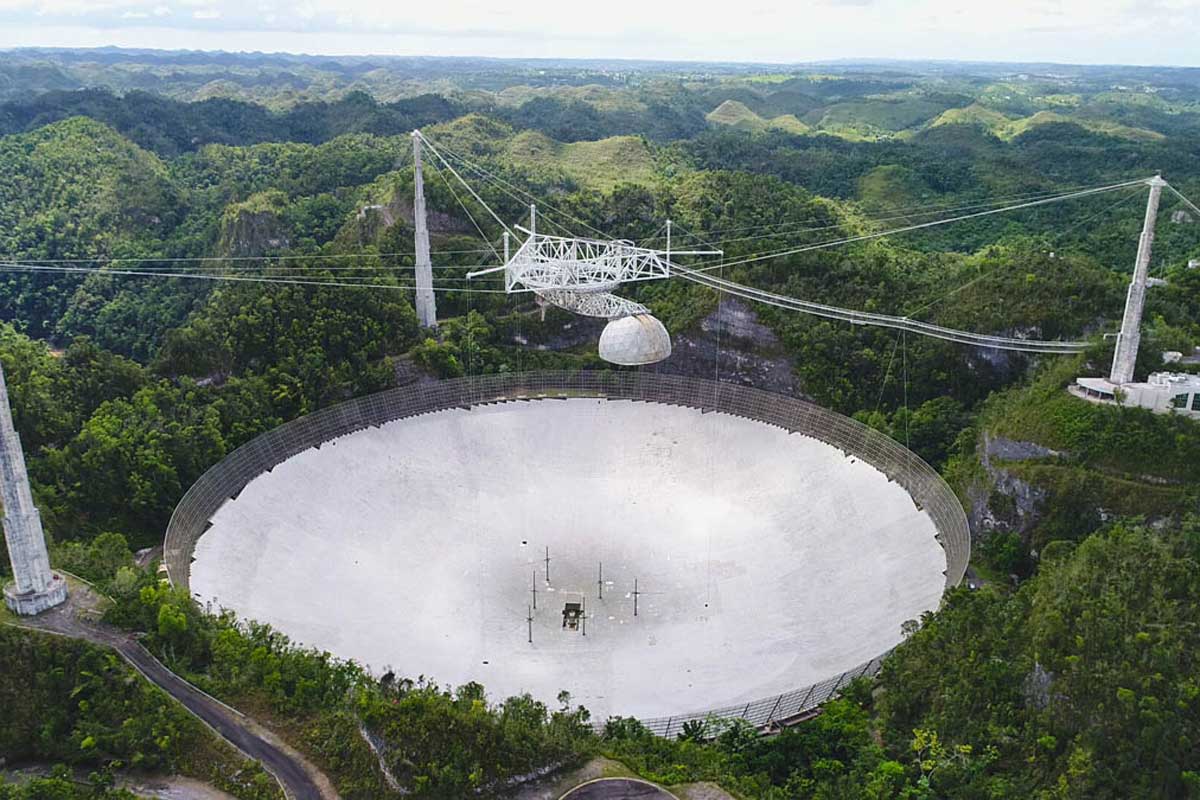Arecibo Observatory suffers more damage as second cable fails
It's the second cable snap for Arecibo in just three months.

The famed Arecibo Observatory in Puerto Rico has suffered another major blow in a difficult year that has seen two snapped cables damage the fragile dish.
The facility's heart is a massive, delicate radio telescope built into the island's geology and surrounded by jungle. Arecibo Observatory has operated for more than five decades, including perhaps most famously broadcasting in 1974 the so-called Arecibo Message meant to update any intelligent life about our technical skills. But lately, the observatory has been battered: First it suffered "relatively minor" damage during 2017's massive Hurricane Maria; this year already it endured a batch of earthquakes in January and then lost one of its thick cables, which snapped and damaged the dish in August. Now, another cable has snapped just three months later.
"This is certainly not what we wanted to see, but the important thing is that no one got hurt," Francisco Cordova, the director of the observatory, said in a statement released by the University of Central Florida, which manages the facility.
Related: The Arecibo Observatory: Puerto Rico's giant radio telescope in photos
"We have been thoughtful in our evaluation and prioritized safety in planning for repairs that were supposed to begin Tuesday," Cordova said, referring to the work planned to fix the cable that broke in August. "Now this. There is much uncertainty until we can stabilize the structure. It has our full attention. We are evaluating the situation with our experts and hope to have more to share soon."
According to the statement, the newly broken cable was one of the main supporting cables connecting to the same tower as the cable that damaged the dish in August. That cable slipped out of its socket and potentially put extra weight on the cable that fully snapped on Nov. 6 and damaged both other cables and the main dish, the university said.
The incident didn't cause any injuries but has prompted the observatory to limit access to the area. Now, observatory personnel hope to be able to install reinforcements to the tower to protect other cables while evaluating what additional repairs will be necessary.
Get the Space.com Newsletter
Breaking space news, the latest updates on rocket launches, skywatching events and more!
"This is not good, but we remain committed to getting the facility back online," Cordova said. "It's just too important of a tool for the advancement of science."
Email Meghan Bartels at mbartels@space.com or follow her on Twitter @meghanbartels. Follow us on Twitter @Spacedotcom and on Facebook.
Join our Space Forums to keep talking space on the latest missions, night sky and more! And if you have a news tip, correction or comment, let us know at: community@space.com.

Meghan is a senior writer at Space.com and has more than five years' experience as a science journalist based in New York City. She joined Space.com in July 2018, with previous writing published in outlets including Newsweek and Audubon. Meghan earned an MA in science journalism from New York University and a BA in classics from Georgetown University, and in her free time she enjoys reading and visiting museums. Follow her on Twitter at @meghanbartels.
-
Lovethrust I would be willing to bet, especially given the location, that insidious corrosion is at least partly to blame.Reply









